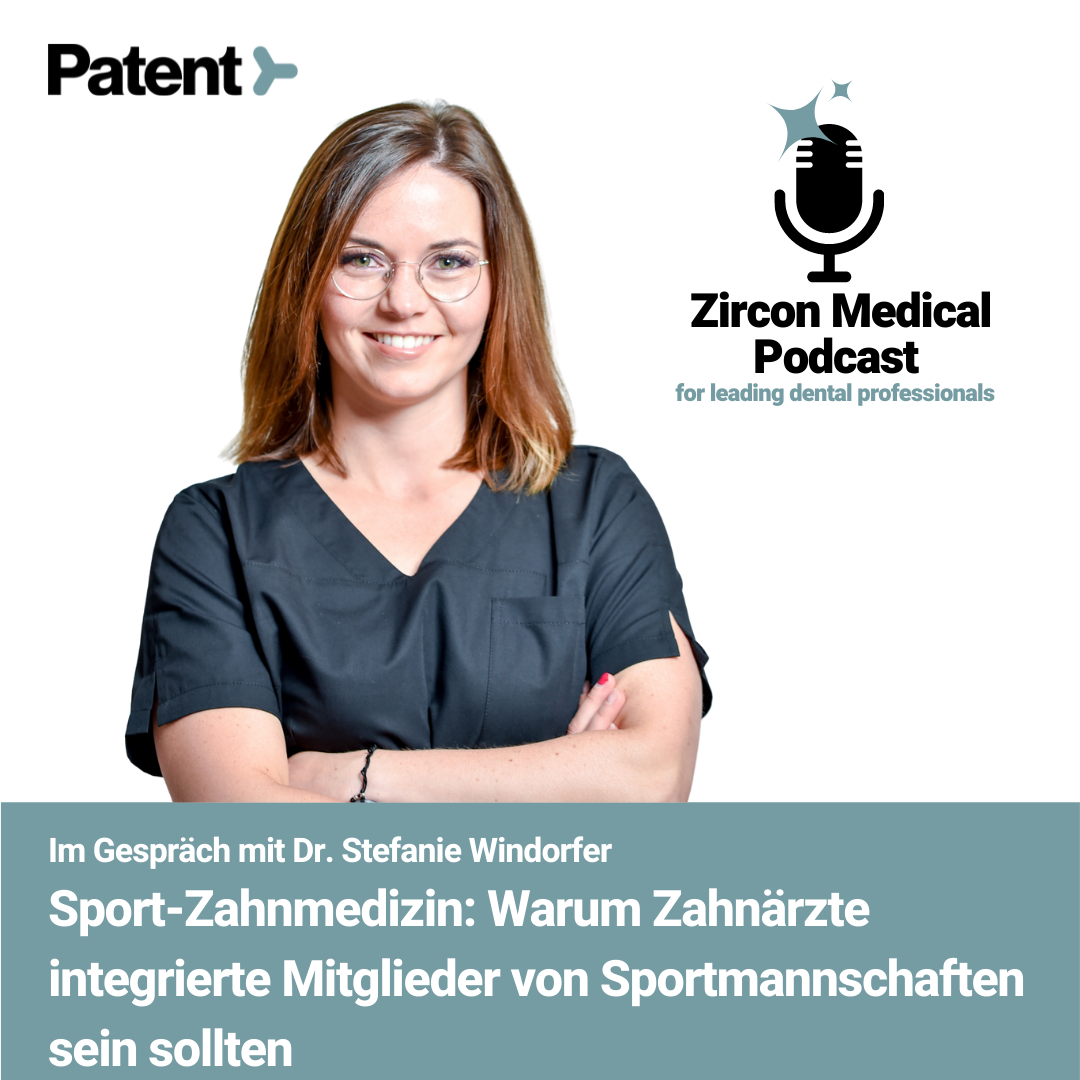Dr. Stefanie Windorfer
Owner of a Dental Practice in Waldkirchen
Relies on modern and innovative dental techniques
Stays abreast of the latestmedical developments through advanced training
Completed her dentistry studies at the University of Munich in 2015
Founded a dental practice in Waldkirchen in 2020
Website: https://zahnarztpraxis-windorfer.de/
Instagram: https://www.instagram.com/zahnarzt_waldkirchen/
Address: Marktpl. 11, 94065 Waldkirchen, Germany
In Conversation with Dr. Stefanie Windorfer
Most people don’t really think of dentists being integral parts of sports teams. But in recent years, sports dentists have increasingly become fully integrated members of various sports teams around the world, especially in hockey, boxing, and other contact sports. Athletes have a higher risk of developing jaw problems, caries, and other dental concerns because of stress-related bruxism and dental injuries, so the importance of a sports dentist shouldn’t be understated.
Our Zircon Medical Podcast recently featured Dr. Stefanie Windorfer, the owner of dental practice specializing in sports dentistry in Waldkirchen. During the podcast, she discussed the importance of dentistry within sports and her approach to sports dentistry. You can read the most prominent takeaways from the discussion in the article below.
Introducing Dr. Stefanie Windorfer, founder and owner of a dental practice in Waldkirchen
Dr. Stefanie Windorfer is the founder and owner of a dental practice in Waldkirchen, Germany. She relies on the most innovative dental techniques and stays abreast of the latest medical developments in dentistry through further training courses. After completing her dental studies at the University of Munich in 2015, she founded a dental practice in 2020.
Dr. Windorfer’s dental practice’s motto is“tradition meets innovation”, an allusion to the fact that her colleagues Bloier and Bloier, with whom she forms a joint practice (meaning 2 practices under one roof) bring traditional knowledge and experience, while she brings innovation and future-oriented thinking to the practice. She believes she’s fortunate that her colleagues are incredibly innovative and forward-thinking themselves, and they bring the wisdom of experience without shutting themselves off to new ideas. That combination has been essential to the dental practice’s ethos.
Dr. Windorfer says she’s the only one in her family to pursue dentistry. She comes from a line of lawyers and economists, but she intended to take a different path. She was always fascinated by dentists, and she wanted to pursue surgical fields within medicine. After completing her A-levels, she applied for dentistry and immediately realized that’s what she wanted to do for the rest of her life.
The decision to specialize in sports dentistry seemed just as clear to Dr. Windorfer. She is a sports enthusiast and calls herself an all-rounder, participating in sporting activities 5 to 6 days a week. She focuses on weight training, running, cycling, circuit training, yoga, mountain biking, dancing, cross-country skiing, snowboarding, and even participating in sports for charity. Because of her interest in sports, the field of sports dentistry seemed like a natural fit.
“You don’t go into sports dentistry to make millions, “ Dr. Windorfer says. “But to support athletes and because it’s fun.”
Gritting one’s teeth: how the jaw is related to sports
Everyone’s heard the phrase “gritting one’s teeth.” The link between the jaw and sports comes down to that simple phrase. While participating in sports and strenuous physical activities, such as weightlifting or sports, people often grit their teeth. Gritting your teeth is stress-induced and subconscious, and it can be worsened by factors like an uneven bite or a missing tooth. When you’re engaging in strenuous activities and gritting your teeth, your jaw joint is often compressed.
Sports dentists offer sports splints to maximize the impact and mouth guards to protect the teeth, minimize the impact and prevent dental injuries. While making a sport splint, Dr. Windorfer takes a temporomandibular joint measurement and offers personalized splints to prevent the deep facial muscles from working to bring the jaw joint and teeth into the right position. Sports splits restore optimal bite, allowing the athlete and their brain to focus exclusively on the sport.
Dr. Windorfer says some of her athletic patients have commented they no longer ride downhill on cycles or bikes without the sports splint because they do not feel sufficiently stabilized.With the performance splints, however, they feel completely stable.In contact sports like field hockey and boxing, dental splints - in that case, mouthguards - are even more common. That’s because contact sports have an additional risk of dental injuries and trauma. Some football players and athletes, such as Patrick Mahomes, can be seen taking their performance splints on and off during games.
The importance of including dentists in sporting teams
Sports physicians are already considered to be essential and integrated parts of sports teams. Their value to the team is indisputable. Sports physicians support athletes, help them prevent injuries, and provide strategies to recover quickly from injuries. Most sports teams now have physicians who travel with them from one event and city to another. But sports teams should also start including sports dentists to the same degree — and many are already ahead of the curve.
Sports dentists are definitely responsible for treating the team members if they sustain dental injuries. But they’re also necessary for pre-screening. Most athletes must undergo a six-month screening process before participating. If they’ve had a wisdom tooth removal, for example, they need to avoid sports for a while. Dentists must examine their players carefully, identify the ideal techniques to improve their oral health and determine if they can participate in the chosen sports.
Furthermore, the mouth can’t be separated from the rest of the body. It’s an integrated part of the body. An individual’s oral health can impact their cardiovascular health, and poor oral health can lead to heart attacks or heart muscle inflammation. If a sports dentist isn’t around to prevent and treat inflammations in the jaws, the patient may eventually suffer from heart problems, even if it isn’t directly linked to oral health later.
Young athletes are also more susceptible to bacterial inflammation and caries than most people. No one expects that top athletes would suffer from periodontitis, but over 50% of all Olympian athletes suffer from dental inflammation or caries. Athletes have a higher risk of inflammation because they often breathe through the mouth, which leads to dryness and reduced salivation, which increases bacterial activity and inflammation.
Sports dentists can coach athletes to minimize the risk of dental caries and deal with inflammation when it occurs.
Athletes must maintain natural teeth as long as possible
When asked about whether athletes need titanium or ceramic implants, Dr. Windorfer said they are not ideal candidates for implants during their active careers! Most sports dentists avoid offering implants to athletes during their active careers. They try to preserve the athlete's natural teeth for as long as possible. If an implant is placed, the implant needs several months to heal properly, which is simply not possible for athletes. If the athlete receives a blow to the face before the implant heals completely, the implant’s integrity will be compromised. That’s why sports dentists focus on building up their teeth and preventing inflammation rather than offering implants. After the active sports career, however, there is nothing standing in the way of an implantation, same as everybody.












